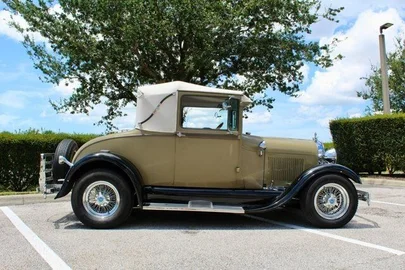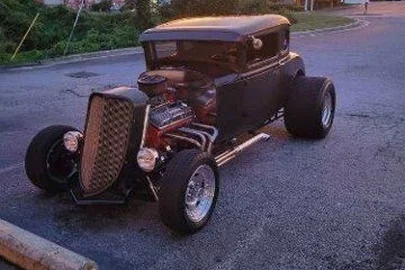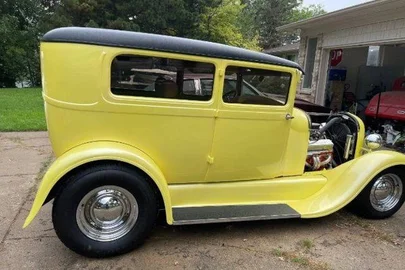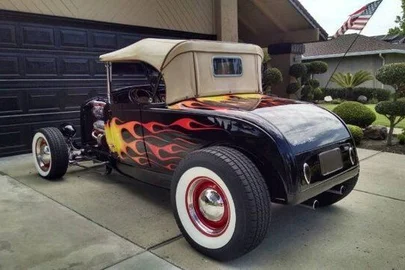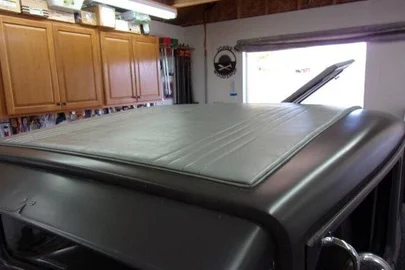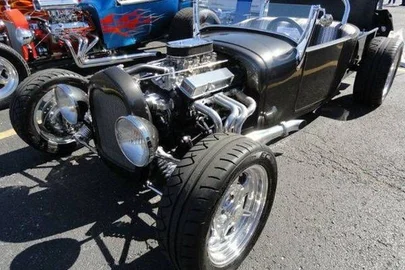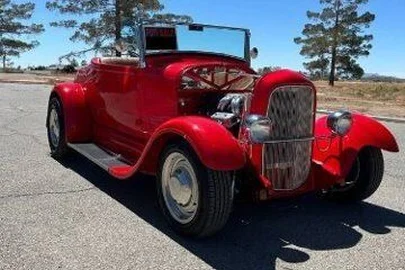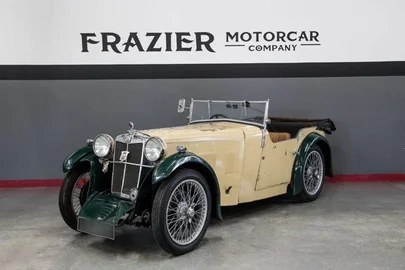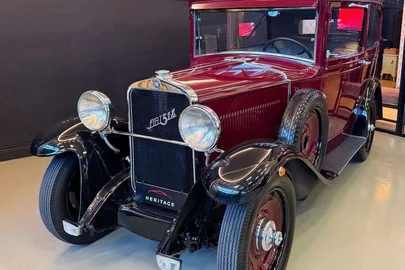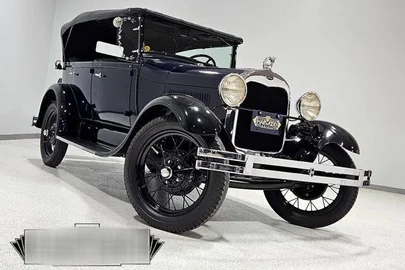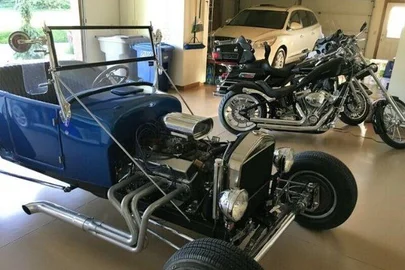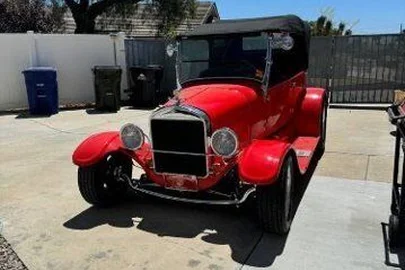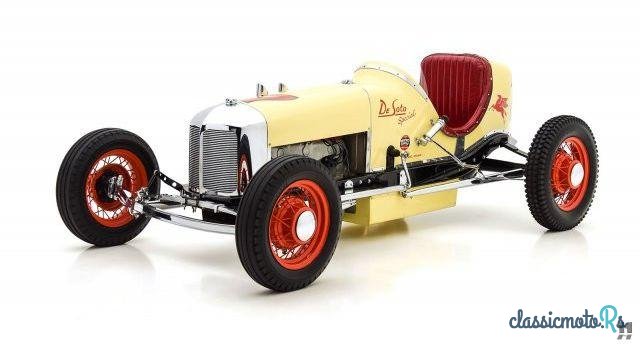
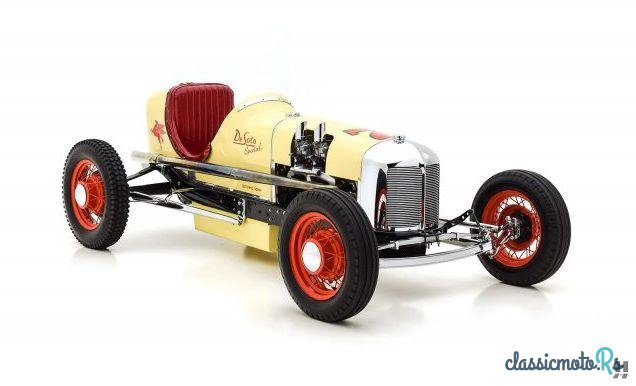
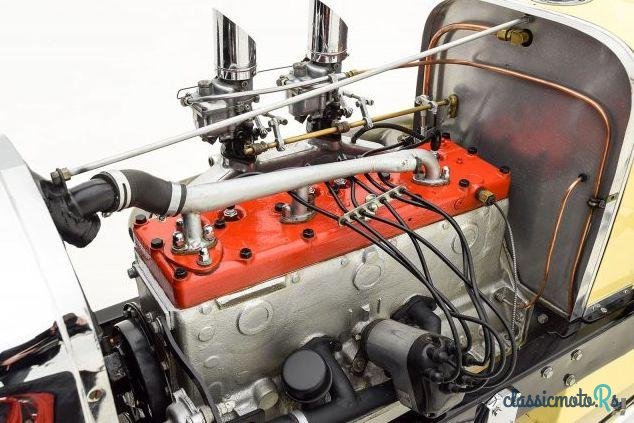
3 foto
1928' DeSoto
Diese Anzeige melden!Bewerte!Lesezeichen setzen
$34,500Veröffentlicht 7 Oktober 2019ID: AgBqik
Abgelaufen
6 Jahre, 4 Monate her
6 Jahre, 4 Monate her
Information from the owner
Alter: 91 Jahre
Außenfarbe: Gelb
Verkäuferkommentare zu 1928' DeSoto
The American racing scene in the 1920s and 1930s drew huge crowds to places like Allentown Pennsylvania Syracuse New York and the Iowa State Fairgrounds where locals watched their favorite drivers pilot their home-built specials in heroic wheel-to-wheel action at speeds approaching 100mph on dirt ovals. These weekly events often had huge attendance and this unique brand of dirt racing was one of the most popular and exciting spectator sports of the era.While each discipline of motorsport has its own requirements the basic tenet of race car building has always remained the same strip away the fat and leave behind only whats necessary to go fast; and the classic American dirt oval race car is one of the best examples of that formula. Oval racing really took off in the 1950s when manufacturers like Kurtis and Hillegass began to offer standard chassis built to accept Offenhauser four-cylinder engines. But before the advent of the production race chassis most racers built their own light purposeful machines based on everyday road cars. The most advanced of these dirt trackers sported cut-down single seat bodywork narrowed frames and solid front and rear axles. The Ford Model T and Model A were the obvious choice as they were cheap and plentiful with aftermarket speed parts such as OHV conversions available to eek every bit of power out of the four-cylinder engines. But the rules of racing at the time allowed for vast creativity and virtually any conceivable combination of chassis and engine. The more creative car builders sometimes looked beyond Ford in their quest for greater power speed and glory.This 1928 DeSoto Special is a charming example of the sort of car that would thunder around the fairgrounds dirt-track scene in the late 1930s. This gorgeous special is a beautifully restored car in period appropriate livery that captures the essence of early American motorsport in its wide stance and purposeful pared-down appearance. While many of the cars from this period were fitted with ubiquitous Ford engines this car is unusual in that it features Chrysler flat-head six-cylinder power. The 170 cubic inch Chrysler six might not seem like the obvious choice for a dirt-tracker but this compact flat-head six was good for 45 horsepower in standard DeSoto trim and was similar to the engine that powered the Chrysler Model 72 to a surprising 3rd place finish at LeMans in 1928 so there is little doubt it was up to the task. For race duty this example sports an Edmunds dual-carb intake topped by twin Zenith carburetors. Exhaust is expelled through a single chrome straight pipe which has developed some pleasing bluing numerous heat cycles. The little six sounds just fantastic in this configuration emitting a baritone bellow from the straight exhaust. We can only imagine how great it would sound at full chat kicking up a rooster tail of dirt as it slides around a flat-track at speed.The pretty bodywork epitomizes the classic American dirt-racer a narrow single seater with the classic upright cut down cockpit that gives the driver the room and leverage to saw wildly at the wheel while chucking the car around at speed. The presentation is quite lovely with fine quality cream-yellow paint that is accented with bright red wire wheels red seat and hand painted period-type lettering. The car presents with fabulous detailing such as the cut-down chrome grille and the chromed from axle. The older restoration has aged quite well with high quality finishes and brightwork remaining in very good condition.Mechanically this is a proper bare-bones dirt racer. The gutsy little six-cylinder sends power rearward via direct drive with no need for a power-sapping transmission. Braking is handled by an outside lever connecting the rear-wheel mechanical brakes which aid in setting the car up for big power slides. Knobby rear tires bite the dirt while ribbed fronts provide a bit of help when steering - though any real dirt-tracker knows that most of the steering is done with the right foot! As with many racing cars from the late pre-war and early post-war period this cars competition history has been lost to time but it remains an alluring period piece that would be a worthy addition to most any collection. It would also be a very welcome sight in vintage dirt track racing or with groups such as the Classic Racing Times who promote and celebrate the preservation of classic American oval racing cars such as this. Simply as an aesthetic period piece this DeSoto special is a beautiful creation that would be at home in virtually any collection but for the enthusiast courageous enough to take it to the track it will surely provide unrivaled thrills.
